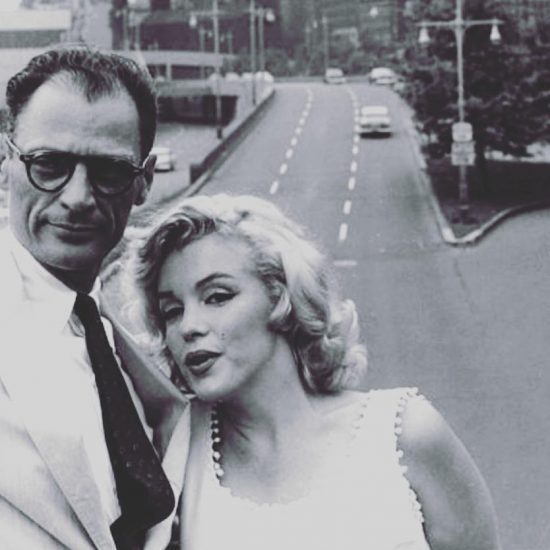
Sophie Gilbert has praised Arthur Miller: Writer as a ‘loving portrait‘ in her review for The Atlantic. Rebecca Miller’s new documentary can now be viewed by HBO subscribers in the US (I will update this blog when it becomes more widely available.)
“Arthur Miller: Writer is a family portrait defined by intimacy with its subject, captured in footage the filmmaker first started shooting in her 20s. The movie’s at its most intriguing when it’s parsing the strangeness of being closely related to someone so celebrated, who put so much of his life in his work. Rebecca’s sister, Jane, recalls how, conversing with her father when she was younger, ‘There were times when he was only interested in something because he could use it.’
It’s a surprise, though, how warm and goofy Miller is in scenes with his daughter, as she captures him working on carpentry projects in his studio in Connecticut or reminiscing in his kitchen. Rebecca Miller, when the camera turns to her, watches him intently, with palpable affection.
Monroe, Miller’s second wife, is a substantial part of the film, although not an overwhelming one. It’s almost as though Rebecca Miller feels reluctant to probe too deeply into her father’s romantic life, even though he himself laid much of it bare in the 1964 play After the Fall. (‘The best work that anybody ever writes is the work that is on the verge of embarrassing him,’ Miller says in one interview.) When Miller and Monroe were first introduced in 1951 he recalled telling her that she was the saddest girl he’d ever met—a line he later put into The Misfits, a film he wrote for her to star in. Their marriage captivated America, given the unlikely union of a brilliant intellect and an incandescent movie star.
But Miller seemed to comprehend the pain within Monroe, who forged a bond with her new father-in-law that lasted until her death. ‘She couldn’t really gain for herself the confidence she had to have to do this,’ Miller tells his daughter. Then he sits, silently, for what feels like minutes, his face distorted with pain. ‘Terrible,’ he says. ‘Well.'”